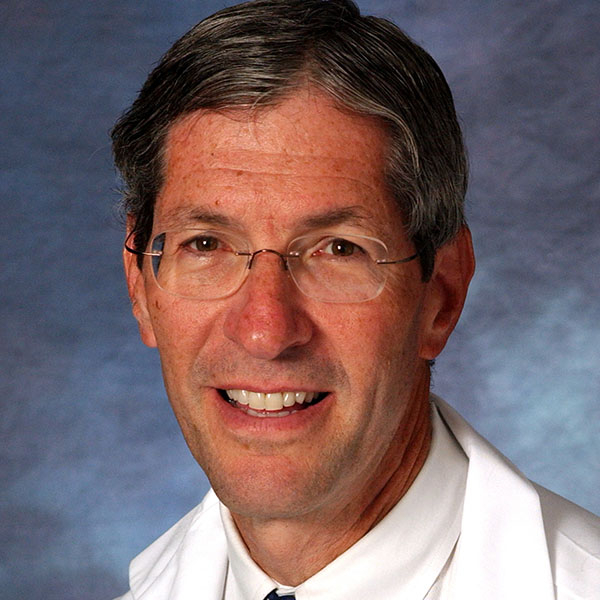
Editor’s note: in honor of Pride Month, we’re re-publishing a 2019 post by Dr. Cecil Webster.
Generally speaking, discussing what happens in our bedrooms outside of the bedroom can be anxiety-provoking. Let’s try to make your doctor’s office an exception. Why is this important? People in the LGBTQ+ community contend not only with a full range of health needs, but also with environments that may lead to unique mental and physical health challenges. Whether or not you have come out in general, doing so with your doctor may prove critical in managing your health. Sexual experiences, with their impact on identity, varied emotional significance, and disease risk, are a keystone for helping your doctor understand how to personalize your healthcare.
Admittedly, talking about your intimate sexual experiences or your gender identity may feel uncomfortable. Many LGBTQ+ patients worry that their clinicians may not be knowledgeable about their needs, or that they’ll to have to educate them. Finding a LGBTQ+ adept doctor, preparing ahead of time for your next appointment, and courageously asking tough questions can give you and your health the best shot.
Finding a skilled clinician who is LGBTQ+ adept
Many large cities have healthcare institutions whose mission centers on care for LGBTQ+ peoples. However, these organizations may prove inaccessible to many for a variety of reasons. Regardless of your location, asking friends, family, or others to recommend a clinician may be a game changer. If your trans friend had a relatively painless experience visiting an area gynecologist, perhaps your Pap smear may go smoothly there as well. If your coworker has a psychiatrist who regularly asks him about his Grindr use, perhaps it may be easier to navigate your gay relationship questions with her.
Word of mouth is often an undervalued method of finding someone skilled and attentive to the needs of LGBTQ+ individuals. Online, many clinicians offer a short bio with their areas of expertise, and there are provider directories featuring trusted clinicians. Further, some doctors regularly write articles and give talks that may offer clues about desired knowledge. A simple Google search of your provider may yield a bounty.
Next, give your doctor or healthcare organization a call. Don’t be shy about requesting someone whose practice matches your specific needs. Your health information is protected, and generally, physicians hold your clinical privacy dear. Keep in mind that not all clinics will know or share whether or not your doctor is, for example, also a lesbian, but they may pair you with someone well suited to your request or point you in the right direction.
Preparing for your appointment
Let’s say you are nervous about coming out to your doctor. A little preparation may ease this burden. Here are some quick tips:
- Let them know you’re nervous at the start of the conversation.
- Be as bold as you can tolerate.
- Write down what you are excited about, nervous about, and/or curious about.
- Go in with a few goals and start with what’s most important.
- Maximize your comfort. If your partner is calming, bring them. If Beyoncé soothes what ails you, bring her along too.
- Lightly correct or update your clinician if they get something wrong.
Ask tough questions, give clear answers
As a psychiatrist who works with kids and adults, I often hear questions like, “I don’t know really how to say this, but I started experimenting with other guys. Does this mean I’m gay?” I may start by asking if you’ve enjoyed it. My colleagues in health care might begin with the same question.
Pleasurable experiences come in all sorts of constellations, and healthy exploration is part of being human. Additionally, clinicians need to assess and address your safety. Many LGBTQ+ people are at higher risk of intimate partner violence. We may ask about your use of condoms, how many partners you’ve had recently, your use of substances during sex, and how these experiences may shift how you see yourself. Give clear answers if possible, but don’t fret if you’re uncertain. Your doctor will not likely provide a label or pry unnecessarily. They may offer constructive information on the use of condoms, reasons to consider using PrEP (which can effectively prevent HIV), and places you can go for more guidance. Physicians enjoy giving personalized information so that you may make informed healthcare decisions.
There is no end to what is on people’s minds. Be bold. Will tucking reduce my sperm count? Maybe. Does binding my breasts come with risk? Likely. Was Shangela robbed of her RuPaul’s Drag Race: All Stars 3 crown? Utterly, but let’s get back to your cholesterol, shall we?
Remember that it is often impossible to squeeze everything into one appointment. Afterward, take time to catch your breath, reflect on what you’ve learned, and come up with more questions for next time. We’re here for that.
About the Author

Cecil R. Webster, Jr., MD, Contributor
Dr. Cecil R. Webster, Jr. is a child, adolescent, and adult psychiatrist in Boston. He is a lecturer in psychiatry at McLean Hospital and Harvard Medical School, and consultant for diversity health outreach programs at the … See Full Bio View all posts by Cecil R. Webster, Jr., MD




